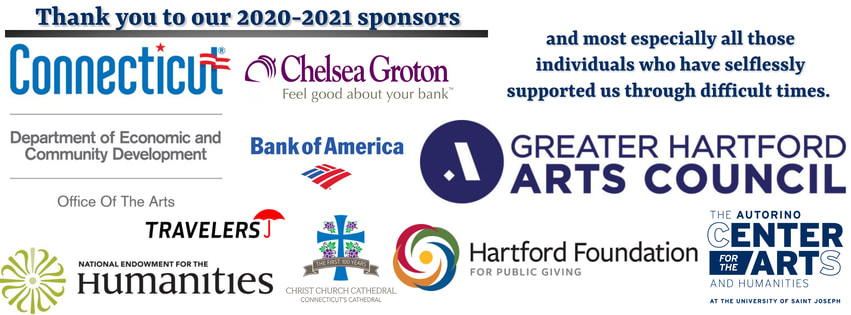Music Intersecting Politics - Live Concert
Sunday, November 15, 2020
Welcome to our digital concert hall. Scroll down through this page to engage in chat and read about the music, composers, and performers.
Click the PLAY button to view the concert, which was broadcast live on November 15, 2020 from the University of St. Joseph in West Hartford, Connecticut. You can move forward or backward in the broadcast at any time.
Overview
Cuatro Puntos Ensemble performs musical works that have challenged the status quo over the past 50 years, beginning with examples of Soviet Era dissent and moving to the present day Middle East and United States. The program will be contextualized by USJ Political Science professor Kenneth Long, and each piece will be introduced by Cuatro Puntos Ensemble cellist and Gateway Community College history professor Allan Ballinger.
Program
Jessie Montgomery: Source Code (9 minutes)
Arvo Pärt: Fratres (11 minutes)
Alfred Schnittke: String Quartet No. 1 (19 minutes)
I. Sonata
II. Canon
III. Cadenza
Ameen Mokdad: Selections from The Curve (12 minutes)
I. Koholo Fajher
II. Yousur
III. From Her
IV. Wenn
Jessie Montgomery: Voodoo Dolls (5 minutes)
Arvo Pärt: Fratres (11 minutes)
Alfred Schnittke: String Quartet No. 1 (19 minutes)
I. Sonata
II. Canon
III. Cadenza
Ameen Mokdad: Selections from The Curve (12 minutes)
I. Koholo Fajher
II. Yousur
III. From Her
IV. Wenn
Jessie Montgomery: Voodoo Dolls (5 minutes)
About the Music
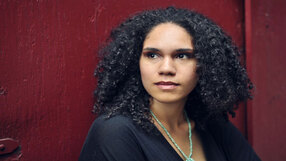 Jessie Montgomery (born 1981), contemporary American composer
Jessie Montgomery (born 1981), contemporary American composer
Jessie Montgomery: Source Code for String Quartet (2018)
The first sketches of Source Code began as transcriptions of various sources from African American artists prominent during the peak of the Civil Rights era in the United States. I experimented by re-interpreting gestures, sentences, and musical syntax (the bare bones of rhythm and inflection) by choreographer Alvin Ailey, poets Langston Hughes and Rita Dove, and the great jazz songstress Ella Fitzgerald into musical sentences and tone paintings. Ultimately, this exercise of listening, re-imagining, and transcribing led me back to the black spiritual as a common musical source across all three genres. The spiritual is a significant part of the DNA of black folk music, and subsequently most (arguably all) American pop music forms that have developed to the present day. This one-movement work is a kind of dirge, which centers on a melody based on syntax derived from black spirituals. The melody is continuous and cycles through like a gene strand with which all other textures play. (notes by Jessie Montgomery)
The first sketches of Source Code began as transcriptions of various sources from African American artists prominent during the peak of the Civil Rights era in the United States. I experimented by re-interpreting gestures, sentences, and musical syntax (the bare bones of rhythm and inflection) by choreographer Alvin Ailey, poets Langston Hughes and Rita Dove, and the great jazz songstress Ella Fitzgerald into musical sentences and tone paintings. Ultimately, this exercise of listening, re-imagining, and transcribing led me back to the black spiritual as a common musical source across all three genres. The spiritual is a significant part of the DNA of black folk music, and subsequently most (arguably all) American pop music forms that have developed to the present day. This one-movement work is a kind of dirge, which centers on a melody based on syntax derived from black spirituals. The melody is continuous and cycles through like a gene strand with which all other textures play. (notes by Jessie Montgomery)
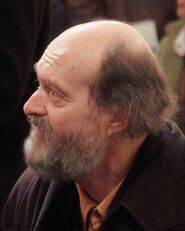 Arvo Pärt (born 1935), contemporary Estonian composer
Arvo Pärt (born 1935), contemporary Estonian composer
Arvo Pärt: Fratres for String Quartet (1977)
Estonian composer Arvo Pärt (b. 1935) grew up during a tumultuous period in his country’s history. The brief independence enjoyed by the Baltic state follow- ing World War I was interrupted in 1939 by the Second World War, resulting in its incorporation as a Soviet Socialist Republic following that conflict. Estonia was one of fifteen Soviet Republics governed by a strident anti-religious Marxism- Leninism. The ensuing persecution of religion and placement of restrictions on composers within the USSR provided the background for Pärt’s formative years and education, impacting his creative work and culminating in the development of his mature style of composition. The first compositions in this mature style, what the composer calls the tintinnabuli technique, appeared in 1976, among which are two of his most famous: Für Alina and Fratres.
Pärt’s mature style was preceded by an eight year period of creative silence, ap- parently in response to the Soviet authorities’ official condemnation of his Credo in 1968. Credo begins with an outspoken statement of Christian faith, “Credo in Jesum Christum,” and continues by setting two lines from the Sermon on the Mount (Matthew 5:38-39): “You have heard it said, an eye for an eye and a tooth for a tooth...But I say to you: do not resist evil.” The Soviet authorities accused Pärt of political defiance, and Credo was subsequently banned from performance in the USSR for the next decade. During the ensuing eight years, Pärt made his living primarily by composing for movies, accompanied only by the publication of his Symphony No. 3 and the cantata Laul Armastatule, the latter of which was later withdrawn.
Fratres, one of his earliest tintinnabuli works, has been arranged by the com- poser for many different combinations of instruments. This arrangement, for Four Cellos, has the fourth cellist playing a drone on the pitches G and D, the second cellist outlining the pitches of a G minor triad in what is called the tintinnabuli voice, and the first and third cellists playing the melody in parallel motion at the interval of a tenth. The melody follows the contour of a G Phrygian Dominant scale: G A-flat B-natural C D E-flat F and G. A fascinating variety of sonorities result from this combination of musical elements.
The work of Arvo Pärt has fascinated me for years, and my doctoral dissertation involves an intersection of history, musical analysis, and spirituality entitled “In Quest of the Sacred: Arvo Pärt and Sieben Magnificat-Antiphonen.” (notes by Allan Ballinger)
Estonian composer Arvo Pärt (b. 1935) grew up during a tumultuous period in his country’s history. The brief independence enjoyed by the Baltic state follow- ing World War I was interrupted in 1939 by the Second World War, resulting in its incorporation as a Soviet Socialist Republic following that conflict. Estonia was one of fifteen Soviet Republics governed by a strident anti-religious Marxism- Leninism. The ensuing persecution of religion and placement of restrictions on composers within the USSR provided the background for Pärt’s formative years and education, impacting his creative work and culminating in the development of his mature style of composition. The first compositions in this mature style, what the composer calls the tintinnabuli technique, appeared in 1976, among which are two of his most famous: Für Alina and Fratres.
Pärt’s mature style was preceded by an eight year period of creative silence, ap- parently in response to the Soviet authorities’ official condemnation of his Credo in 1968. Credo begins with an outspoken statement of Christian faith, “Credo in Jesum Christum,” and continues by setting two lines from the Sermon on the Mount (Matthew 5:38-39): “You have heard it said, an eye for an eye and a tooth for a tooth...But I say to you: do not resist evil.” The Soviet authorities accused Pärt of political defiance, and Credo was subsequently banned from performance in the USSR for the next decade. During the ensuing eight years, Pärt made his living primarily by composing for movies, accompanied only by the publication of his Symphony No. 3 and the cantata Laul Armastatule, the latter of which was later withdrawn.
Fratres, one of his earliest tintinnabuli works, has been arranged by the com- poser for many different combinations of instruments. This arrangement, for Four Cellos, has the fourth cellist playing a drone on the pitches G and D, the second cellist outlining the pitches of a G minor triad in what is called the tintinnabuli voice, and the first and third cellists playing the melody in parallel motion at the interval of a tenth. The melody follows the contour of a G Phrygian Dominant scale: G A-flat B-natural C D E-flat F and G. A fascinating variety of sonorities result from this combination of musical elements.
The work of Arvo Pärt has fascinated me for years, and my doctoral dissertation involves an intersection of history, musical analysis, and spirituality entitled “In Quest of the Sacred: Arvo Pärt and Sieben Magnificat-Antiphonen.” (notes by Allan Ballinger)
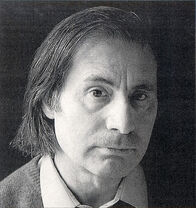 Alfred Schnittke (1934-1998), Soviet/German composer
Alfred Schnittke (1934-1998), Soviet/German composer
Alfred Schnittke: String Quartet No. 1 (1966)
Like many of Schnittke's roughly 250 compositions, his four string quartets reflect the influence of other composers. At times they also seem to obey the composer's dictum of "acting as though [conventional musical systems] do not exist". Such a compositional approach allows him effectively to subvert both the grip which other styles can exert on a free-thinking composer; and – paradoxically – to embrace a multitude of compositional genres and techniques… his famed "polystylism".
Like many of Schnittke's roughly 250 compositions, his four string quartets reflect the influence of other composers. At times they also seem to obey the composer's dictum of "acting as though [conventional musical systems] do not exist". Such a compositional approach allows him effectively to subvert both the grip which other styles can exert on a free-thinking composer; and – paradoxically – to embrace a multitude of compositional genres and techniques… his famed "polystylism".
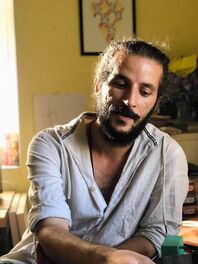 Ameen Mokdad (born 1989), contemporary Iraqi composer
Ameen Mokdad (born 1989), contemporary Iraqi composer
Ameen Mokdad: Selections from The Curve (2016-2018)
Iraqi composer and multi-instrumentalist Ameen Mokdad was trapped in hiding by ISIS for two years in his hometown of Mosul. During that time he wrote an extraordinary repertoire of powerful and emotional music. He arranged it later for string quartet. The 19 songs on the album titled The Curve form a soundscape that transverses a range of emotions: fear, defeat, hope, and rebirth.
I. Koholo Fajer - The dawn had eyes, and the eyes had a nice liner holding a new hope and sometimes a dream.
II. Yousur - In the darkest days, our feeling runs in two lines: the line of tiredness, anger and sadness, and the line of happiness and peace. A line that takes us to screaming, revolution and crying, and a parallel line that takes us to smile and calmness. It is not a contradiction, but a harmony. A line expressing the reality that surrounds us, as a feeling or as a place. A line that expresses our need and our thirst for peace in that reality. Yosur is sharp evidence coming from the second line. A whispering inspiration says: "After any hardship there is peace and ease, even if the darkness stayed long".
III. From Her - Every time your smiles are on - Every star of hope are shows - Tells the world that every night - In the end there is a dawn
IV. Wenn - If...
(poetry by Ameen Mokdad)
Iraqi composer and multi-instrumentalist Ameen Mokdad was trapped in hiding by ISIS for two years in his hometown of Mosul. During that time he wrote an extraordinary repertoire of powerful and emotional music. He arranged it later for string quartet. The 19 songs on the album titled The Curve form a soundscape that transverses a range of emotions: fear, defeat, hope, and rebirth.
I. Koholo Fajer - The dawn had eyes, and the eyes had a nice liner holding a new hope and sometimes a dream.
II. Yousur - In the darkest days, our feeling runs in two lines: the line of tiredness, anger and sadness, and the line of happiness and peace. A line that takes us to screaming, revolution and crying, and a parallel line that takes us to smile and calmness. It is not a contradiction, but a harmony. A line expressing the reality that surrounds us, as a feeling or as a place. A line that expresses our need and our thirst for peace in that reality. Yosur is sharp evidence coming from the second line. A whispering inspiration says: "After any hardship there is peace and ease, even if the darkness stayed long".
III. From Her - Every time your smiles are on - Every star of hope are shows - Tells the world that every night - In the end there is a dawn
IV. Wenn - If...
(poetry by Ameen Mokdad)
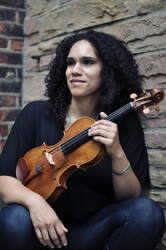 Jessie Montgomery (born 1981), contemporary American composer
Jessie Montgomery (born 1981), contemporary American composer
Jessie Montgomery: Voodoo Dolls for String Quartet (2008)
Voodoo Dolls was commissioned in 2008 and choreographed by the JUMP! Dance Company of Rhode Island, a collaborative work among their faculty and students. The choreography was a suite of dances, each one representing a different traditional children’s doll: Russian dolls, marionettes, rag dolls, Barbie, voodoo dolls… The piece is influenced by west African drumming patterns and lyrical chant motives, all of which feature highlights of improvisation within the ensemble.
Voodoo Dolls was commissioned in 2008 and choreographed by the JUMP! Dance Company of Rhode Island, a collaborative work among their faculty and students. The choreography was a suite of dances, each one representing a different traditional children’s doll: Russian dolls, marionettes, rag dolls, Barbie, voodoo dolls… The piece is influenced by west African drumming patterns and lyrical chant motives, all of which feature highlights of improvisation within the ensemble.
About the Musicians
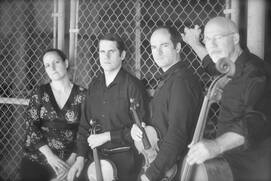 Cuatro Puntos Ensemble
Cuatro Puntos Ensemble
Cuatro Puntos Ensemble
Cuatro Puntos Ensemble, based in Hartford, Connecticut under sponsorship of Cuatro Puntos, collaborates with local, national, and international guest artists to produce genre-defying and culturally significant concert programing and album recordings. Aiming for the highest in artistic excellence while working alongside socially significant artists such as the Afghanistan National Institute of Music and musician activist Ameen Mokdad (Mosul, Iraq), Cuatro Puntos Ensemble has been reviewed by Fanfare Magazine as having a “great depth of sound” and “virtuostic performance”. They have performed extensively throughout the United States as well as in Bolivia, Brazil, England, Germany, the Netherlands, Turkey, and Afghanistan. To date they have produced six albums of varying genres and styles on major international record labels like Métier, Toccata Classics, and Arkadash Records. They have been included on the soundtrack for films produced in England, Australia, and Afghanistan, and have been guest lecturers at prestigious universities such as New England Conservatory (Boston), Columbia University (New York), Institute for Cultural Diplomacy (Germany), and Goldsmiths College (London). Discography: Gullistan-e Nur: The Rosegarden of Light (Tocatta Classics 2016); Jaipur to Cairo (Métier 2019); Centennial Cole (Truth Revolution Records 2019); The Curve (Arkadash Records 2019); Sounds of Persia (Arkadash Records 2021); From the Countryside (Arkadash Records 2021). Purchase albums by clicking here.
Cuatro Puntos Ensemble, based in Hartford, Connecticut under sponsorship of Cuatro Puntos, collaborates with local, national, and international guest artists to produce genre-defying and culturally significant concert programing and album recordings. Aiming for the highest in artistic excellence while working alongside socially significant artists such as the Afghanistan National Institute of Music and musician activist Ameen Mokdad (Mosul, Iraq), Cuatro Puntos Ensemble has been reviewed by Fanfare Magazine as having a “great depth of sound” and “virtuostic performance”. They have performed extensively throughout the United States as well as in Bolivia, Brazil, England, Germany, the Netherlands, Turkey, and Afghanistan. To date they have produced six albums of varying genres and styles on major international record labels like Métier, Toccata Classics, and Arkadash Records. They have been included on the soundtrack for films produced in England, Australia, and Afghanistan, and have been guest lecturers at prestigious universities such as New England Conservatory (Boston), Columbia University (New York), Institute for Cultural Diplomacy (Germany), and Goldsmiths College (London). Discography: Gullistan-e Nur: The Rosegarden of Light (Tocatta Classics 2016); Jaipur to Cairo (Métier 2019); Centennial Cole (Truth Revolution Records 2019); The Curve (Arkadash Records 2019); Sounds of Persia (Arkadash Records 2021); From the Countryside (Arkadash Records 2021). Purchase albums by clicking here.
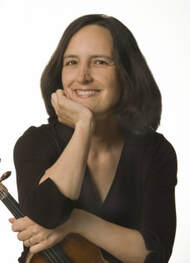 Annie Trépanier
Annie Trépanier
Annie Trépanier, violin
Violinist Annie Trépanier's playing has been hailed by The Boston Globe as "supercharged, clear-headed, yet soulful." She is a founding member of the acclaimed Avery Ensemble and has performed throughout Canada, the United States and Europe. Her recent Avery Ensemble CD of piano quartets by Mahler, Schnittke and Brahms was an obvious favorite of one classical.net reviewer: “gorgeous… the performers clearly have passionate feelings about what they are playing. This is what loving music is all about.” She has been heard regularly in national broadcasts on Radio-Canada, CBC and NPR and has recorded for the CRI, New World, Ongaku, & Zephyr labels. She is a former member of the New World Trio and the Diabelli String Quartet and has appeared as a guest with such ensembles as the Copenhagen and Adaskin String Trios. She studied with Denise Lupien, Claude Richard, Teri Einfeldt, Philip Setzer, and Pamela Frank and holds degrees from McGill University, the University of Ottawa and The Hartt School. In addition, she studied chamber music with members of the Orion, Emerson, Cleveland and Orford String Quartets. Ms. Trépanier is on the faculty of The Hotchkiss School and also performs and teaches each summer at the Wintergreen Festival in Virginia. She is currently the concertmaster of the Connecticut-based chamber orchestra Aeterna.
Violinist Annie Trépanier's playing has been hailed by The Boston Globe as "supercharged, clear-headed, yet soulful." She is a founding member of the acclaimed Avery Ensemble and has performed throughout Canada, the United States and Europe. Her recent Avery Ensemble CD of piano quartets by Mahler, Schnittke and Brahms was an obvious favorite of one classical.net reviewer: “gorgeous… the performers clearly have passionate feelings about what they are playing. This is what loving music is all about.” She has been heard regularly in national broadcasts on Radio-Canada, CBC and NPR and has recorded for the CRI, New World, Ongaku, & Zephyr labels. She is a former member of the New World Trio and the Diabelli String Quartet and has appeared as a guest with such ensembles as the Copenhagen and Adaskin String Trios. She studied with Denise Lupien, Claude Richard, Teri Einfeldt, Philip Setzer, and Pamela Frank and holds degrees from McGill University, the University of Ottawa and The Hartt School. In addition, she studied chamber music with members of the Orion, Emerson, Cleveland and Orford String Quartets. Ms. Trépanier is on the faculty of The Hotchkiss School and also performs and teaches each summer at the Wintergreen Festival in Virginia. She is currently the concertmaster of the Connecticut-based chamber orchestra Aeterna.
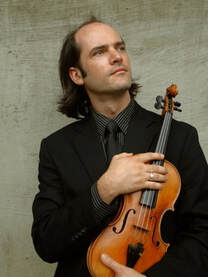 Aaron Packard
Aaron Packard
Aaron Packard, violin
Aaron Packard maintains a varied career as a violinist, performing music of many genres and periods. He is an avid improviser and proponent of new music, working closely with composers such as U.S.-born Norway resident Ellen Lindquist, and Elizabeth Adams and Ted Hearne in New York, to find and experiment with new sound ideas. Having studied period performance with Arthur Haas at SUNY Stony Brook, his interpretations are also informed by the strength of tradition and history. He currently teaches at the Joy of Music Program in Worcester, MA, and at the Groton School in Groton, MA. Performance collaborators include Orfeo Duo, 17th-century specialist and improvising harpsichordist Gabe Shuford, Mantra Percussion, violinist Vita Wallace, and bassist Nick Walker. He has been a frequent guest with Avery Ensemble, presenting works from Beethoven to Schnittke. Since 2007 Aaron has been honored to perform in and around Saranac Lake, NY as a part of the Loon Lake Live concert series. Major violin teachers include Greg Fulkerson and the late Mitchell Stern, but he is proud to say he was really started on the path toward becoming a listener by the incomparable pianist Gil Kalish, and Tim Eddy of the Orion String Quartet. While at home, Mr. Packard spends time meditating on breath and movement, raising chickens, and loving life with his wife and two young children.
Aaron Packard maintains a varied career as a violinist, performing music of many genres and periods. He is an avid improviser and proponent of new music, working closely with composers such as U.S.-born Norway resident Ellen Lindquist, and Elizabeth Adams and Ted Hearne in New York, to find and experiment with new sound ideas. Having studied period performance with Arthur Haas at SUNY Stony Brook, his interpretations are also informed by the strength of tradition and history. He currently teaches at the Joy of Music Program in Worcester, MA, and at the Groton School in Groton, MA. Performance collaborators include Orfeo Duo, 17th-century specialist and improvising harpsichordist Gabe Shuford, Mantra Percussion, violinist Vita Wallace, and bassist Nick Walker. He has been a frequent guest with Avery Ensemble, presenting works from Beethoven to Schnittke. Since 2007 Aaron has been honored to perform in and around Saranac Lake, NY as a part of the Loon Lake Live concert series. Major violin teachers include Greg Fulkerson and the late Mitchell Stern, but he is proud to say he was really started on the path toward becoming a listener by the incomparable pianist Gil Kalish, and Tim Eddy of the Orion String Quartet. While at home, Mr. Packard spends time meditating on breath and movement, raising chickens, and loving life with his wife and two young children.
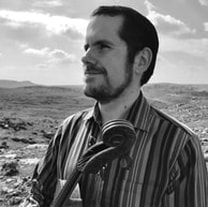 Kevin Bishop
Kevin Bishop
Kevin Bishop, viola
Kevin’s life work serves the ideal of “social music making”- the belief that music education can aid community building, personal elevation, and reconstruction. His varied career as a violist, violinist, conductor, composer, educator, and arts administrator has taken him around the world to study, witness, engage with, and lead social music projects. Having grown up in a troubled neighborhood near Los Angeles, his entrepreneurial career began young when he founded the Western Society of Chamber Music after tragedy caused the demise of his school’s music program. He led this organization and its community-minded efforts for 7 years before moving to Connecticut and founding Cuatro Puntos. Vía Cuatro Puntos he volunteered with an El Sistema program in Bolivia for two summers, then in Afghanistan for three. Kevin eventually became Director of Orchestral Studies at the Afghanistan National Institute of Music, living in Afghanistan for an extended period. During this time he led the country’s only orchestra in numerous concerts for presidents and ambassadors. He prepared the country’s first female conductors to lead the Afghan Women’s Orchestra in concerts across Europe, including the closing ceremony of the World Economic Forum in Switzerland. In addition to being Executive Director of Cuatro Puntos, Kevin is also music director of the Music Moves Hartford Street Choir, serving Hartford's homeless and displaced population. He is previously Co-Founder of Müzikhane Social Music School, which is near the Syrian border in Southeastern Turkey. Kevin composes and records music inspired by the traditions he encounters, and he has records on the Arkadash, Toccata Classics and Métier labels. Speaking of a solo viola track on Toccata Classics label, Fanfare Magazine said he plays with “great intensity”. In a review of one of Kevin's compositions on the Métier label, Fanfare said "Bishop’s music has a convincing unity of purpose and direction that is captivating, even engrossing". Kevin also loves to keep music fun- sometimes you will find him playing viola and kick drum simultaneously as he plays and records albums his own arrangements with the pop string quartet Golden Scroll Soloists. He has performed with the band Foo Fighters at the Grammy Awards and with members of Led Zeppelin.
Kevin’s life work serves the ideal of “social music making”- the belief that music education can aid community building, personal elevation, and reconstruction. His varied career as a violist, violinist, conductor, composer, educator, and arts administrator has taken him around the world to study, witness, engage with, and lead social music projects. Having grown up in a troubled neighborhood near Los Angeles, his entrepreneurial career began young when he founded the Western Society of Chamber Music after tragedy caused the demise of his school’s music program. He led this organization and its community-minded efforts for 7 years before moving to Connecticut and founding Cuatro Puntos. Vía Cuatro Puntos he volunteered with an El Sistema program in Bolivia for two summers, then in Afghanistan for three. Kevin eventually became Director of Orchestral Studies at the Afghanistan National Institute of Music, living in Afghanistan for an extended period. During this time he led the country’s only orchestra in numerous concerts for presidents and ambassadors. He prepared the country’s first female conductors to lead the Afghan Women’s Orchestra in concerts across Europe, including the closing ceremony of the World Economic Forum in Switzerland. In addition to being Executive Director of Cuatro Puntos, Kevin is also music director of the Music Moves Hartford Street Choir, serving Hartford's homeless and displaced population. He is previously Co-Founder of Müzikhane Social Music School, which is near the Syrian border in Southeastern Turkey. Kevin composes and records music inspired by the traditions he encounters, and he has records on the Arkadash, Toccata Classics and Métier labels. Speaking of a solo viola track on Toccata Classics label, Fanfare Magazine said he plays with “great intensity”. In a review of one of Kevin's compositions on the Métier label, Fanfare said "Bishop’s music has a convincing unity of purpose and direction that is captivating, even engrossing". Kevin also loves to keep music fun- sometimes you will find him playing viola and kick drum simultaneously as he plays and records albums his own arrangements with the pop string quartet Golden Scroll Soloists. He has performed with the band Foo Fighters at the Grammy Awards and with members of Led Zeppelin.
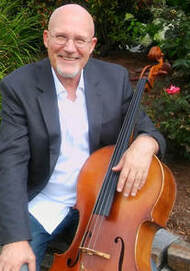 Allan Ballinger
Allan Ballinger
Allan Ballinger, cello Dr. Allan Ballinger has pursued dual paths in the fields of music and history over the course of his life, which is particularly interesting because his father was a high school history teacher and mother a church organist and choir director. Allan is not only active as a performer with Cuatro Puntos, but also teaches history and political science in the Social Sciences department at Gateway Community College in New Haven, CT, reflecting his lifelong commitment to empowering the disenfranchised and underserved in our society. Dr. Ballinger has masters’ degrees in both modern European history and music education from Central Connecticut State University. He earned his Doctor of Musical Arts degree from the University of Connecticut (2013) in cello performance, with a minor in music history. His doctoral dissertation, In Quest of the Sacred: Arvo Pärt and Sieben Magnificat-Antiphonen, combines an analysis of that composer’s music with an exploration of his spirituality, and the historical context in which his unique style of composition evolved. Allan’s fascination with the Estonian composer reflects his own interest in spirituality and the practice of kriya yoga, and his masters’ thesis studying religious dissidents of the Soviet Union. His analysis of Arvo Pärt’s Cantus in Memory of Benjamin Britten was recently published in the International Journal of Humanities and Social Science and was presented at the annual conference of the Community College Humanities Association in November 2017.
About The Composers
Jessie Montgomery (born 1981)
Jessie Montgomery is a violinist, composer and music educator from New York City. She performs and gives workshops in the US and abroad and her compositions are being performed by orchestras and chamber groups throughout the country.
Jessie was born and raised in Manhattan’s Lower East Side in the 1980s during a time when the neighborhood was at a major turning point in its history. Artists gravitated there and it was a hotbed of cultural activity and community development. Her parents (father a musician, her mother, an actress) were engaged in the activities of the neighborhood and regularly brought Jessie to rallies, performances and parties where neighbors, activists and artists gathered to celebrate and support the movements of the time. It is from this unique experience that Jessie has created a life in which performance, creativity, education and advocacy merge.
Jessie began her violin studies, at the Third Street Music School Settlement, one of the oldest community organizations in the country. Upon graduating with her Bachelor’s degree from the Juilliard School in Violin Performance in 2003, she joined forces with Community MusicWorks in Providence, Rhode Island, a nationally recognized leader in community development and music education. With this appointment came her first experience as a professional chamber musician as a member of the Providence String Quartet. She continued her chamber music endeavors as a founding member of PUBLIQuartet, a string quartet made up of composers and arrangers, featuring their own music as well as that of emerging and established contemporary composers. Since 2012 she has held post as a member of the highly acclaimed Catalyst Quartet, raved by the New York Times as “invariably energetic and finely burnished…performing with earthly vigor”, touring regularly in the United States and abroad. Most recently she has become a collaborator with Yo-Yo Ma’s Silkroad Ensemble and will tour with them in the upcoming 2018-19 season.
Since 1999, Jessie has been affiliated with The Sphinx Organization, which supports the accomplishments of young African-American and Latino string players. As a member of the Sphinx network she has played numerous roles within the organization, as a teacher, juror, orchestra member and concertmaster, panelist and ambassador, as well as being a two-time laureate in their annual competition. Jessie was also Composer-in-Residence with the Sphinx Virtuosi, a conductor-less string orchestra which toured her music for 3 seasons. The tours resulted in radio broadcasts on Performance Today, WFMT in Chicago, Q2 and others, and a review in the Washington Post calling her music “Turbulent, wildly colorful and exploding with life.” In 2014, Jessie was awarded Sphinx’s generous MPower grant to assist in the recording of her acclaimed debut album, Strum: Music for Strings (October, 2015, Azica Records). The Whole Note states that the album displays “a remarkable self-assurance and confidence together with a striking musical inventiveness and imagination”; and Second Inversion, Seattle’s alternative classical radio station, remarks that “The album combines classical chamber music with elements of folk music, spirituals, improvisation, poetry and politics, crafting a unique and insightful new-music perspective on the cross-cultural intersections of American history.”
In 2012, Jessie completed her graduate degree in Composition for Film and Multimedia at New York University, at which point composing became a true focus on her path. Opportunities came about to partner with the American Composers Orchestra, the Sphinx Organization and chamber groups throughout New York City. Other commissions began to emerge from the Albany Symphony, the Joyce Foundation, Orpheus Chamber Orchestra, and the Young People’s Chorus of NY.
In fall 2018, Jessie will be an incoming Virginia B.Toulmin Fellow at the Centre for Ballet and the Arts, where she will complete work on a new ballet for Dance Theater of Harlem and the Virginia Arts Festival, in collaboration with choreographer Claudia Schreier. Other upcoming highlights include premieres of new work for soprano Julia Bullock, The Muir Quartet and performances by the Saint Paul Chamber Orchestra.
Teachers and mentors include Sally Thomas, Ann Setzer, Alice Kanack, Joan Tower, Derek Bermel, Mark Suozzo, Ira Newborn and Laura Kaminsky.
Jessie Montgomery is a violinist, composer and music educator from New York City. She performs and gives workshops in the US and abroad and her compositions are being performed by orchestras and chamber groups throughout the country.
Jessie was born and raised in Manhattan’s Lower East Side in the 1980s during a time when the neighborhood was at a major turning point in its history. Artists gravitated there and it was a hotbed of cultural activity and community development. Her parents (father a musician, her mother, an actress) were engaged in the activities of the neighborhood and regularly brought Jessie to rallies, performances and parties where neighbors, activists and artists gathered to celebrate and support the movements of the time. It is from this unique experience that Jessie has created a life in which performance, creativity, education and advocacy merge.
Jessie began her violin studies, at the Third Street Music School Settlement, one of the oldest community organizations in the country. Upon graduating with her Bachelor’s degree from the Juilliard School in Violin Performance in 2003, she joined forces with Community MusicWorks in Providence, Rhode Island, a nationally recognized leader in community development and music education. With this appointment came her first experience as a professional chamber musician as a member of the Providence String Quartet. She continued her chamber music endeavors as a founding member of PUBLIQuartet, a string quartet made up of composers and arrangers, featuring their own music as well as that of emerging and established contemporary composers. Since 2012 she has held post as a member of the highly acclaimed Catalyst Quartet, raved by the New York Times as “invariably energetic and finely burnished…performing with earthly vigor”, touring regularly in the United States and abroad. Most recently she has become a collaborator with Yo-Yo Ma’s Silkroad Ensemble and will tour with them in the upcoming 2018-19 season.
Since 1999, Jessie has been affiliated with The Sphinx Organization, which supports the accomplishments of young African-American and Latino string players. As a member of the Sphinx network she has played numerous roles within the organization, as a teacher, juror, orchestra member and concertmaster, panelist and ambassador, as well as being a two-time laureate in their annual competition. Jessie was also Composer-in-Residence with the Sphinx Virtuosi, a conductor-less string orchestra which toured her music for 3 seasons. The tours resulted in radio broadcasts on Performance Today, WFMT in Chicago, Q2 and others, and a review in the Washington Post calling her music “Turbulent, wildly colorful and exploding with life.” In 2014, Jessie was awarded Sphinx’s generous MPower grant to assist in the recording of her acclaimed debut album, Strum: Music for Strings (October, 2015, Azica Records). The Whole Note states that the album displays “a remarkable self-assurance and confidence together with a striking musical inventiveness and imagination”; and Second Inversion, Seattle’s alternative classical radio station, remarks that “The album combines classical chamber music with elements of folk music, spirituals, improvisation, poetry and politics, crafting a unique and insightful new-music perspective on the cross-cultural intersections of American history.”
In 2012, Jessie completed her graduate degree in Composition for Film and Multimedia at New York University, at which point composing became a true focus on her path. Opportunities came about to partner with the American Composers Orchestra, the Sphinx Organization and chamber groups throughout New York City. Other commissions began to emerge from the Albany Symphony, the Joyce Foundation, Orpheus Chamber Orchestra, and the Young People’s Chorus of NY.
In fall 2018, Jessie will be an incoming Virginia B.Toulmin Fellow at the Centre for Ballet and the Arts, where she will complete work on a new ballet for Dance Theater of Harlem and the Virginia Arts Festival, in collaboration with choreographer Claudia Schreier. Other upcoming highlights include premieres of new work for soprano Julia Bullock, The Muir Quartet and performances by the Saint Paul Chamber Orchestra.
Teachers and mentors include Sally Thomas, Ann Setzer, Alice Kanack, Joan Tower, Derek Bermel, Mark Suozzo, Ira Newborn and Laura Kaminsky.
Arvo Pärt (born 1935)
The Estonian composer, Arvo Pärt was born in Paide, Estonia, a small town near Tallinn, the country's capital. In 1944, Estonia saw the occupation of the Soviet Union, which would last for over 50 years, and would have a profound effect on his life and music. His musical studies began in 1954 at the Tallinn Music Secondary School, interrupted less than a year later while he fulfilled his National Service obligation as oboist and side-drummer in an army band. He returned to Middle School for a year before joining the Tallinn Conservatory in 1957, where his composition teacher was Professor Heino Eller. Pärt started work as a recording engineer with Estonian Radio, wrote music for the stage and received numerous commissions for film scores so that, by the time he graduated from the Conservatory in 1963, he could already be considered a professional composer. A year before leaving, he won first prize in the All-Union Young Composers' Competition for a children's cantata, Our Garden, and an oratorio, Stride of the World.
Living in the old Soviet Union, Arvo Pärt had little access to what was happening in contemporary Western music but, despite such isolation, the early 1960s in Estonia saw many new methods of composition being brought into use and Pärt was at the fore front. His Nekrolog was the first Estonian composition to employ serial technique. He continued with serialism through to the mid 60s in pieces such as the Symphony No. 1, Symphony No. 2 and Perpetuum Mobile, but ultimately tired of its rigours and moved on to experiment, in works such as Collage über BACH, with collage techniques.
Official judgement of Pärt's music veered between extremes, with certain works being praised and others, like the Credo of 1968, being banned. This would prove to be the last of his collage pieces and after its composition, Pärt chose to enter the first of several periods of contemplative silence, also using the time to study French and Franco-Flemish choral music from the 14th to 16th centuries: Machaut, Ockeghem, Obrecht, Josquin. At the very beginning of the 1970’s, he wrote a few transitional compositions in the spirit of early European polyphony, like his Symphony No. 3 from 1971.
Arvo Pärt turned again to self-imposed silence, but re-emerged in 1976 after a transformation so radical as to make his previous music almost unrecognisable as that of the same composer. The technique he invented, or discovered, and to which he has remained loyal, practically without exception, he calls "tintinnabuli" (from the Latin, little bells), which he describes thus: "I have discovered that it is enough when a single note is beautifully played. This one note, or a silent beat, or a moment of silence, comforts me. I work with very few elements —with one voice, two voices. I build with primitive materials —with the triad, with one specific tonality. The three notes of a triad are like bells and that is why I call it tintinnabulation." The basic guiding principle behind tintinnabulation of composing two simultaneous voices as one line - one voice moving stepwise from and to a central pitch, first up then down, and the other sounding the notes of the triad - made its first public appearance in the short piano piece, Für Alina.
Having found his voice, there was a subsequent rush of new works and three of the 1977 pieces - Fratres, Cantus in Memoriam Benjamin Britten and Tabula Rasa - are still amongst his most highly regarded. As Pärt's music began to be performed in the west and he continued to struggle against Soviet officialdom, his frustration ultimately forced him, his wife Nora and their two sons, to emigrate in 1980. They never made it to their intended destination of Israel but, with the assistance of his publisher in the West, settled firstly in Vienna, where he took Austrian citizenship. One year later, with a scholarship from the German Academic Exchange, he moved to West Berlin where he still lives.
Since leaving Estonia, Arvo Pärt has concentrated on setting religious texts, which have proved popular with choirs and ensembles around the world. Among his champions in the West have been Manfred Eicher's ECM Records who released the first recordings of Pärt's music outside the Soviet bloc, Paul Hillierr's Hilliard Ensemble who have premiered several of the vocal works and Neeme Järvi, a long time collaborator of Pärt who conducted the premiere of Credo in Tallinn in 1968 and has, as well as recording the tintinnabuli pieces, introduced Pärt's earlier compositions through performances and recordings.
Pärt's achievements were honoured in his 61st year by his election to the American Academy of Arts and Letters. He was nominated as 14th International Composer for the year 2000 by the Royal Academy of Music in London. In May 2003, he also received the "Contemporary Music Award" at the Classical Brit Awards ceremony at the Royal Albert Hall in London.
September 11, 2010 was the date of Arvo Pärt's 75th birthday. As a homage to the composer, the Arvo Pärt Festival 2010 took place in several Estonian towns.
The Estonian composer, Arvo Pärt was born in Paide, Estonia, a small town near Tallinn, the country's capital. In 1944, Estonia saw the occupation of the Soviet Union, which would last for over 50 years, and would have a profound effect on his life and music. His musical studies began in 1954 at the Tallinn Music Secondary School, interrupted less than a year later while he fulfilled his National Service obligation as oboist and side-drummer in an army band. He returned to Middle School for a year before joining the Tallinn Conservatory in 1957, where his composition teacher was Professor Heino Eller. Pärt started work as a recording engineer with Estonian Radio, wrote music for the stage and received numerous commissions for film scores so that, by the time he graduated from the Conservatory in 1963, he could already be considered a professional composer. A year before leaving, he won first prize in the All-Union Young Composers' Competition for a children's cantata, Our Garden, and an oratorio, Stride of the World.
Living in the old Soviet Union, Arvo Pärt had little access to what was happening in contemporary Western music but, despite such isolation, the early 1960s in Estonia saw many new methods of composition being brought into use and Pärt was at the fore front. His Nekrolog was the first Estonian composition to employ serial technique. He continued with serialism through to the mid 60s in pieces such as the Symphony No. 1, Symphony No. 2 and Perpetuum Mobile, but ultimately tired of its rigours and moved on to experiment, in works such as Collage über BACH, with collage techniques.
Official judgement of Pärt's music veered between extremes, with certain works being praised and others, like the Credo of 1968, being banned. This would prove to be the last of his collage pieces and after its composition, Pärt chose to enter the first of several periods of contemplative silence, also using the time to study French and Franco-Flemish choral music from the 14th to 16th centuries: Machaut, Ockeghem, Obrecht, Josquin. At the very beginning of the 1970’s, he wrote a few transitional compositions in the spirit of early European polyphony, like his Symphony No. 3 from 1971.
Arvo Pärt turned again to self-imposed silence, but re-emerged in 1976 after a transformation so radical as to make his previous music almost unrecognisable as that of the same composer. The technique he invented, or discovered, and to which he has remained loyal, practically without exception, he calls "tintinnabuli" (from the Latin, little bells), which he describes thus: "I have discovered that it is enough when a single note is beautifully played. This one note, or a silent beat, or a moment of silence, comforts me. I work with very few elements —with one voice, two voices. I build with primitive materials —with the triad, with one specific tonality. The three notes of a triad are like bells and that is why I call it tintinnabulation." The basic guiding principle behind tintinnabulation of composing two simultaneous voices as one line - one voice moving stepwise from and to a central pitch, first up then down, and the other sounding the notes of the triad - made its first public appearance in the short piano piece, Für Alina.
Having found his voice, there was a subsequent rush of new works and three of the 1977 pieces - Fratres, Cantus in Memoriam Benjamin Britten and Tabula Rasa - are still amongst his most highly regarded. As Pärt's music began to be performed in the west and he continued to struggle against Soviet officialdom, his frustration ultimately forced him, his wife Nora and their two sons, to emigrate in 1980. They never made it to their intended destination of Israel but, with the assistance of his publisher in the West, settled firstly in Vienna, where he took Austrian citizenship. One year later, with a scholarship from the German Academic Exchange, he moved to West Berlin where he still lives.
Since leaving Estonia, Arvo Pärt has concentrated on setting religious texts, which have proved popular with choirs and ensembles around the world. Among his champions in the West have been Manfred Eicher's ECM Records who released the first recordings of Pärt's music outside the Soviet bloc, Paul Hillierr's Hilliard Ensemble who have premiered several of the vocal works and Neeme Järvi, a long time collaborator of Pärt who conducted the premiere of Credo in Tallinn in 1968 and has, as well as recording the tintinnabuli pieces, introduced Pärt's earlier compositions through performances and recordings.
Pärt's achievements were honoured in his 61st year by his election to the American Academy of Arts and Letters. He was nominated as 14th International Composer for the year 2000 by the Royal Academy of Music in London. In May 2003, he also received the "Contemporary Music Award" at the Classical Brit Awards ceremony at the Royal Albert Hall in London.
September 11, 2010 was the date of Arvo Pärt's 75th birthday. As a homage to the composer, the Arvo Pärt Festival 2010 took place in several Estonian towns.
Alfred Schnittke (1934-1998)
Alfred Garrievich Schnittke was born on 24 November 1934 in Engels in southern Russia. On his mother’s side he was of Volga German and Roman Catholic extraction, on his father’s side he was German-Jewish. His sense that his background set him apart from the majority in the USSR was reinforced when, from 1945-48, his father was posted to Vienna, and the delighted boy discovered Austro-German cultural and musical traditions.
He entered the Moscow Conservatory in 1953, completed post-graduate work in 1961, and from then on earned his living, partly by teaching, partly by writing for the cinema (nearly 70 scores in 30 years). Fired by the rebellious modernism prevailing in Moscow in the early 1960s, Schnittke embarked on a voyage of compositional discovery. His works of the 1960s show him embracing the modernist and avant-garde fascinations of the time. Outstanding among his pieces of this period are 2 violin sonatas (1964, 1968), and the String Quartet No.1 and Violin Concerto No.2 (both 1966).
In 1972 he finished the massive First Symphony, blending Soviet symphonic thought, often parodied, with highly experimental elements. This powerful work established him as a leader of Soviet modern music, loathed by the authorities and adored by the anti-Soviet ‘underground’. Later came the hauntingly simple Piano Quintet (1976), and the comically sinister Concerto Grosso No.1 (1977). All three pieces have taken his name all over the world.
String concertos play a large part in Schnittke’s output and reflect his close friendship with some of the leading players of his time including Gidon Kremer, Yuri Bashmet and Mstislav Rostropovich. For such stars he has written 4 violin concertos, a viola concerto, 2 cello concertos, 6 concerti grossi and much else besides. Symphonies continued to be important. At the time of his death he had sketched, but not finished, a Ninth. He also wrote much chamber music.
In 1985 Schnittke suffered a stroke which left him in bad health for the rest of his life. Far from impeding him, however, sickness seems to have released an inner torrent and in later years he became prolific, answering each successive brush with death with a further flood of music. And with each new work he moved further from the more playful and satirical modernism of his earlier pieces into a dark and often difficult but always personal world where spiritual concerns and religious themes predominate. In his last years he and his wife moved to Hamburg, where he died on 3 August 1998.
Reprinted by kind permission of Gerard McBurney/Boosey & Hawkes
Alfred Garrievich Schnittke was born on 24 November 1934 in Engels in southern Russia. On his mother’s side he was of Volga German and Roman Catholic extraction, on his father’s side he was German-Jewish. His sense that his background set him apart from the majority in the USSR was reinforced when, from 1945-48, his father was posted to Vienna, and the delighted boy discovered Austro-German cultural and musical traditions.
He entered the Moscow Conservatory in 1953, completed post-graduate work in 1961, and from then on earned his living, partly by teaching, partly by writing for the cinema (nearly 70 scores in 30 years). Fired by the rebellious modernism prevailing in Moscow in the early 1960s, Schnittke embarked on a voyage of compositional discovery. His works of the 1960s show him embracing the modernist and avant-garde fascinations of the time. Outstanding among his pieces of this period are 2 violin sonatas (1964, 1968), and the String Quartet No.1 and Violin Concerto No.2 (both 1966).
In 1972 he finished the massive First Symphony, blending Soviet symphonic thought, often parodied, with highly experimental elements. This powerful work established him as a leader of Soviet modern music, loathed by the authorities and adored by the anti-Soviet ‘underground’. Later came the hauntingly simple Piano Quintet (1976), and the comically sinister Concerto Grosso No.1 (1977). All three pieces have taken his name all over the world.
String concertos play a large part in Schnittke’s output and reflect his close friendship with some of the leading players of his time including Gidon Kremer, Yuri Bashmet and Mstislav Rostropovich. For such stars he has written 4 violin concertos, a viola concerto, 2 cello concertos, 6 concerti grossi and much else besides. Symphonies continued to be important. At the time of his death he had sketched, but not finished, a Ninth. He also wrote much chamber music.
In 1985 Schnittke suffered a stroke which left him in bad health for the rest of his life. Far from impeding him, however, sickness seems to have released an inner torrent and in later years he became prolific, answering each successive brush with death with a further flood of music. And with each new work he moved further from the more playful and satirical modernism of his earlier pieces into a dark and often difficult but always personal world where spiritual concerns and religious themes predominate. In his last years he and his wife moved to Hamburg, where he died on 3 August 1998.
Reprinted by kind permission of Gerard McBurney/Boosey & Hawkes
Ameen Mokdad (born 1989)
Ameen Mokdad, born 1989 in Baghdad, graduated from the Agriculture and Forestry College at the University of Mosul in 2013. He lived in the Northern Iraqi city of Mosul from 2003 until after the ISIS occupation. Ameen started learning and making music in 2009 and has been composing for film and theatre since 2014. He has acted in and directed experimental theatre plays since 2017, and has worked as a music teacher and conductor since 2018. In 2019 he founded the Light Orchestra in the city of Mosul. He is a composer and musician in the play Taqasim Ala Alhayat, written by the Iraqi director Jawad al-Asadi and based on Anton Chekhov's novel Ward No. 6. Taqasim Ala Alhayat had presentations at the 11th Arab Theater Festival in Cairo (2019), the 54th International Festival of Carthage (2018) and at the Muntada Theater in Baghdad (2018). He are regularly curated and performed in street performances as a musician and dancer since 2017 across Iraqi cities, keeping with his deep personal belief that music should be brought to people where they are. He has also been a member of TARKIB Baghdad Contemporary Arts Institute since 2017. Ameen has an internationally acclaimed album called The Curve , featuring music written in the city of Mosul during ISIS occupation. He recorded The Curve alongside the American Cuatro Puntos Ensemble, and it has since received International acclaim. You can hear Ameen's music by searching "Ameen Mokdad" on Youtube, Spotify, Apple Music, Amazon Music, Aghami, or on any other major streaming service.
Ameen Mokdad, born 1989 in Baghdad, graduated from the Agriculture and Forestry College at the University of Mosul in 2013. He lived in the Northern Iraqi city of Mosul from 2003 until after the ISIS occupation. Ameen started learning and making music in 2009 and has been composing for film and theatre since 2014. He has acted in and directed experimental theatre plays since 2017, and has worked as a music teacher and conductor since 2018. In 2019 he founded the Light Orchestra in the city of Mosul. He is a composer and musician in the play Taqasim Ala Alhayat, written by the Iraqi director Jawad al-Asadi and based on Anton Chekhov's novel Ward No. 6. Taqasim Ala Alhayat had presentations at the 11th Arab Theater Festival in Cairo (2019), the 54th International Festival of Carthage (2018) and at the Muntada Theater in Baghdad (2018). He are regularly curated and performed in street performances as a musician and dancer since 2017 across Iraqi cities, keeping with his deep personal belief that music should be brought to people where they are. He has also been a member of TARKIB Baghdad Contemporary Arts Institute since 2017. Ameen has an internationally acclaimed album called The Curve , featuring music written in the city of Mosul during ISIS occupation. He recorded The Curve alongside the American Cuatro Puntos Ensemble, and it has since received International acclaim. You can hear Ameen's music by searching "Ameen Mokdad" on Youtube, Spotify, Apple Music, Amazon Music, Aghami, or on any other major streaming service.
Free ways to support these artists right now
Subscribe to Cuatro Puntos and Autorino Center on Youtube.
Follow Cuatro Puntos on Spotify - Click here and then click on "follow"
Follow Ameen Mokdad on Spotify - Click here and then click on "follow"
Follow Jessie Montgomery on Spotify - Click here and then click "follow"
Like Cuatro Puntos on Facebook - Click here
Like Ameen Mokdad on Facebook - Click here
Like Autorino Center on Facebook - Click here
Follow us all on Instagram: @cuatropuntos.ct @autorino.center @ameen_mokdad @jmontgomerymusic
You can also find and follow Cuatro Puntos, Ameen Mokdad, and Jessie Montgomery on Apple Music, Amazon Music, and other major streaming services.
Follow Cuatro Puntos on Spotify - Click here and then click on "follow"
Follow Ameen Mokdad on Spotify - Click here and then click on "follow"
Follow Jessie Montgomery on Spotify - Click here and then click "follow"
Like Cuatro Puntos on Facebook - Click here
Like Ameen Mokdad on Facebook - Click here
Like Autorino Center on Facebook - Click here
Follow us all on Instagram: @cuatropuntos.ct @autorino.center @ameen_mokdad @jmontgomerymusic
You can also find and follow Cuatro Puntos, Ameen Mokdad, and Jessie Montgomery on Apple Music, Amazon Music, and other major streaming services.

